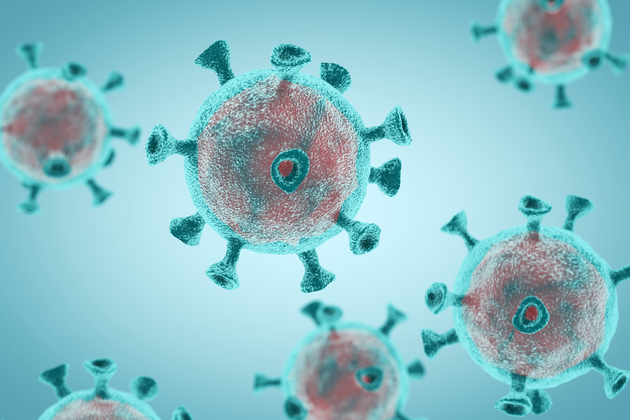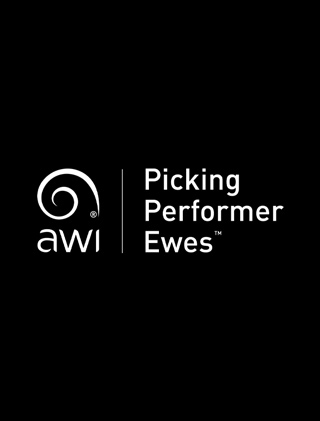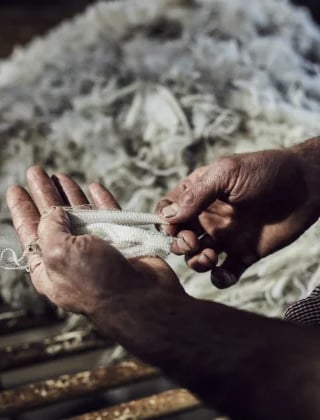Woolgrowers & COVID-19

As COVID-19 spreads throughout Australia, woolgrowers should be proactive and put plans in place to ensure that their farming operations, staff and contractors, family and friends are as protected as possible.
As COVID-19 spreads throughout Australia, woolgrowers should be proactive and put plans in place to ensure that their farming operations, staff and contractors, family and friends are as protected as possible.
This publication should only be used as a general aid and is not a substitute for specific advice. As the COVID-19 pandemic is rapidly evolving we suggest you keep up to date on official government announcements. To the extent permitted by law, we exclude all liability for loss or damage arising from the use of the information in this publication. © 2021 Australian Wool Innovation Ltd. All rights reserved.
ACT NOW!
The following points are intended as a guide to start your farm’s planning process. It is not an exhaustive list. Use these points as discussion topics with your team, agree on actions, and then put the actions in place. Act now!
Protecting staff from exposure
- Employers and employees all have a legal responsibility to help provide a safe workplace.
- Employers and employees all have a moral responsibility to help reduce the spread of COVID-19 throughout the community and protect health and lives.
- Are all members of your team taking COVID-19 seriously and taking reasonable actions now?
Managing visitors, trips off your property and close contacts
- Consider how you manage people coming from overseas or from areas that put them at higher risk of having the disease. This could include any city, town, or your local area.
- If team members generally pick up parts or supplies, how can those purchases be planned ahead to be done differently? Could you instead get things dropped off or left outside instead to reduce the exposure risk?
- Would it be useful to enhance your existing farm biosecurity measures and further restrict visitor access to your farm/business or put signage and processes in place to advise visitors of your protocols on arrival?
- How do team members and their close contacts plan to manage their personal lives and trips to grocery stores? Each workplace is a community that will need to work together to look after each other. Different people will have different ideas about managing risk and the level of risk involved. Try not to butt heads - make sure everyone has access to up-to-date information on COVID-19 and a good understanding of how it may impact the business and the people in each team member's network.
Goods & services your business needs
- What goods (e.g. chemicals, fertilisers, equipment) do you rely on to keep your business going in the coming months? Consider contacting suppliers to discuss if there will be any impact on availability or to let them know what you will need.
- What services (e.g. mechanics, shearers, fuel deliveries, agents, advisors) do you require over the coming months? Can you arrange systems so that they can service you without coming on farm? If they need to come on farm, are they aware of the processes you have in place to reduce the risk to your team? Do you know their expectations around protecting their staff? Is there an alternative service provider available in the case that the one you normally use can no longer deliver the service?
- Contact your major suppliers and services providers now to find out how they are preparing and talk to them about your requirements.
- If you are a farm service provider, consider contacting your clients now to ask if they have new protocols in place for property access and to let them know about how your business is responding to deliver continuity of service and minimise risk of spread.
Changing how you use shared spaces & surfaces
- Do you have shared vehicles, work spaces, hand-washing facilities, bathrooms or kitchen facilities and are they set up to reduce risk of transmission?
- Are there processes in place to clean down shared surfaces regularly or to reduce the need to share them? For example, think about things multiple people touch like door handles, taps, food surfaces, steering wheels, operating screens, switches, the inside of vehicles, the fuel bowser.
- Could you stop team members sharing vehicles and machinery, or could you clean the cabs, hand rails and door handles down between operators?
- Can your team members adequately clean their hands before they eat or after they have touched shared surfaces?
- How are shared / staff meals being prepared and are there adequate hygiene practices in place?
- Consider ensuring that soap and hand sanitiser are readily available and whether you need protocols in place to ensure they are used regularly and correctly. If you can't get hand sanitiser at the shop, are there other ways you could source or safely make it?
- Could you replace shared hand-towels with disposable paper towels?
- Are all members of the team and their close contacts practicing social distancing of one person per 4 square meters?
- If you have shared accommodation has it been set up to reduce risk of transmission?
- What measures could you put in place to protect other staff in shared accommodation if one of them developed symptoms or tested positive?
Responding to members of the team being out of action
- How would the business be impacted by limited labour due to staff having to self-isolate, or the closure of schools or childcare? What can you do to prepare?
- How could you respond if one of your team members or someone they have regular contact with was required to isolate or tested positive?
- How could you respond if a team member displayed symptoms?
- What policies are in place for sick or 'isolation' leave? If there are none in place or you work with casuals, will they feel financial pressure to keep working if they feel unwell? Would putting a plan in place reduce this risk?
Responding as the situation changes and keeping the team informed
- Are you regularly accessing accurate and useful information in order to update your team and your business continuity plan?
- Is the information you are accessing from a reliable source?
- If you need to make changes to your business's response to COVID-19, how will you communicate it with your team to make sure everyone is on the same page?
Supporting each other
- How could you support a team member if they or their family are required to isolate or tested positive?
- Are there members of your team who are not coping well due to stress or anxiety?
- How can you keep a sense of team and social contact while social distancing measures in place?
- How could you support a farm neighbour or a similar service provider if their business is impacted and they are struggling to deliver their farming program or business services?
FURTHER INFORMATION
Australian Government Department of Health
- COVID-19 resources
- COVID-19 health alert
- COVID-19 frequently asked questions (5-page fact sheet)
Posters for your farm premises
Posters for your farm premises
- How to avoid infection or spreading the virus (healthdirect)
- Hand hygiene (Chamber of Commerce and Industry WA)
Guidance for employers
- Coronavirus and Australian Workplace Laws (Fair Work Ombudsman). For employers and employees under the national industrial relations system, ie those on the Pastoral Award 2010 for companies.
- Coronavirus (COVID-19): Advice for Employers (Safe Work Australia)
- COVID-19 Employer Guide (Australian Chamber of Commerce and Industry)
- Shearing Operations: Protocols in response to COVID-19
Farmhub COVID-19 resources:















